Why Investing in Our Local Food System Helps Fight Hunger
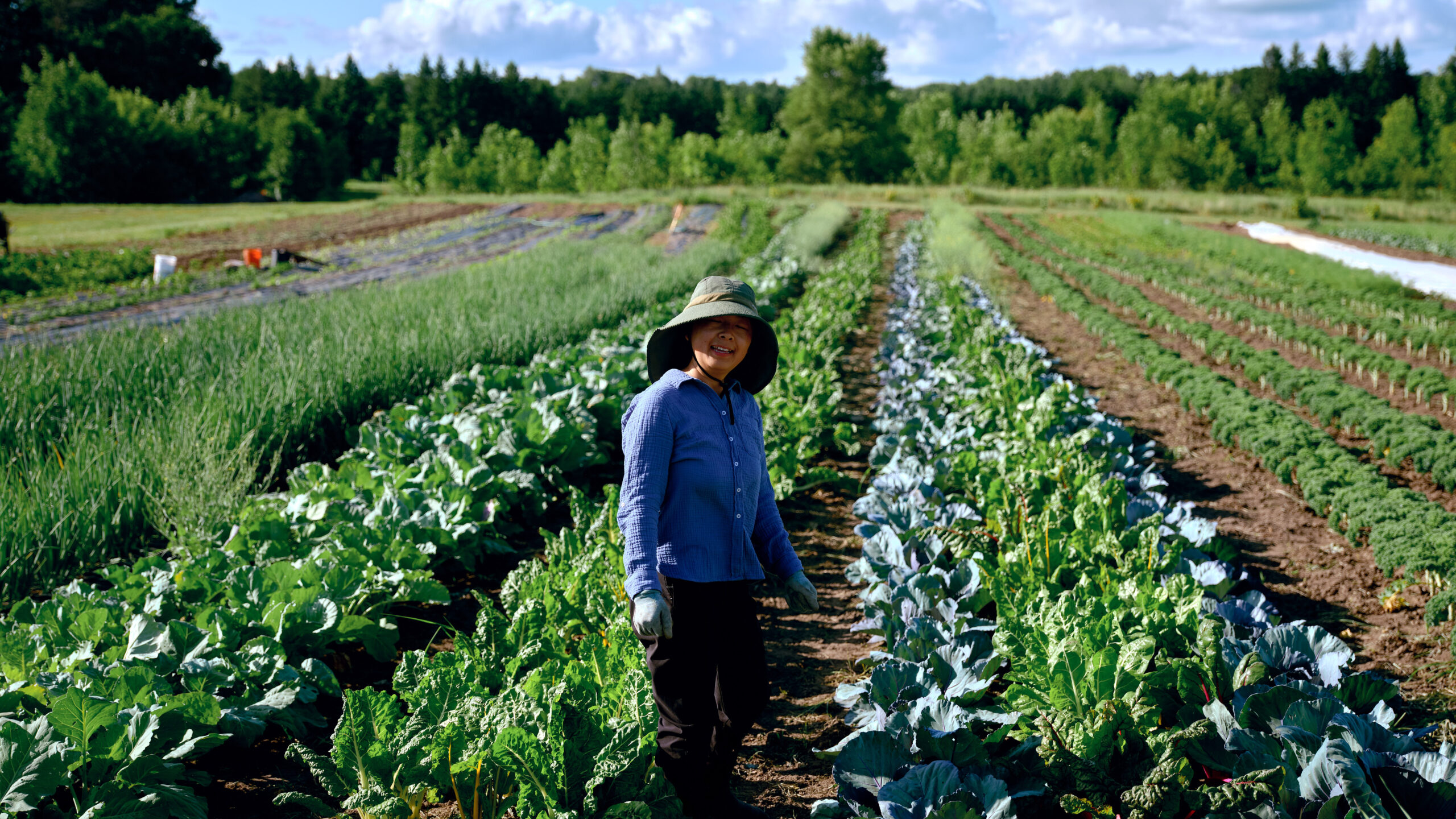
Manela, a farmer enrolled in the Incubator Program at Big River Farms
Under a lingering summer sun, farmers in The Food Group’s Incubator Program moved nimbly between rows to pull stubborn weeds. In the coming weeks, they will harvest and sell what they grow at local co-ops and farmers markets. They also sell to The Food Group, stocking food shelves and our affordable grocery programs, Fare for All and Twin Cities Mobile Market.
The Food Group’s Incubator Program provides land access and support for emerging farmers to learn to cultivate crops and build up a farming business. For The Food Group, partnering with farmers and building a sustainable local food system represents a long-term solution to food scarcity.
Rising Need Meets Lasting Solutions
The Food Group recorded 9 million visits to Minnesota food shelves in 2024, shattering records for the fourth year. With food assistance cuts looming and rising grocery costs, food is now less accessible than ever.
We need both immediate and lasting solutions to hunger. That’s why The Food Group works to build a stronger local food system by training emerging farmers, building local partnerships, and sourcing fresh, home-grown food.

Back to Our Home-Grown Roots
Local food is viewed as a luxury today, but it shouldn’t be. At one time, much of Minnesota’s food was grown and sold locally.
Rhys Williams, volunteer board member at The Food Group and former director of The Good Acre, has been farming and working in Minnesota’s food system for decades. Rhys recalled how Minnesota evolved from a local food system to an out-state export chain.
Rhys Williams, The Food Group Volunteer Board Member and Former Director of The Food Acre
“In the 50s and 60s, ‘Big Ag’ came in and took up all the land and it continued… Now there are giant production centers of food that isn’t going back into the community.”
These extractive farming practices hurt the land and our capacity to grow future food. Rhys said: “It’s very short-sighted. It exploits the land for all its worth.” He added that those that come after bear the consequences.
After decades of disinvestment in local farmers, Minnesota is reliant on fragile national supply chains. Those supply chains are easily disrupted, leading to scarcity and high food costs for families. Snow Aukema, Associate Director of Programs, Anti-Hunger, and Sourcing at The Food Group, remarked that today “food of all types is unattainable for more people than ever.”
Bringing Local Food to Every Table
Local food is both a remedy to hunger and a solution to supply chain fragility. Consider eggs, a household staple for many Minnesota families. They’re packed with high-quality protein and essential nutrients. They also form the culinary cornerstone of many cultural dishes from egg curry to huevos rancheros to nafaqo. But when the avian flu hit this past winter, eggs became a rare commodity.
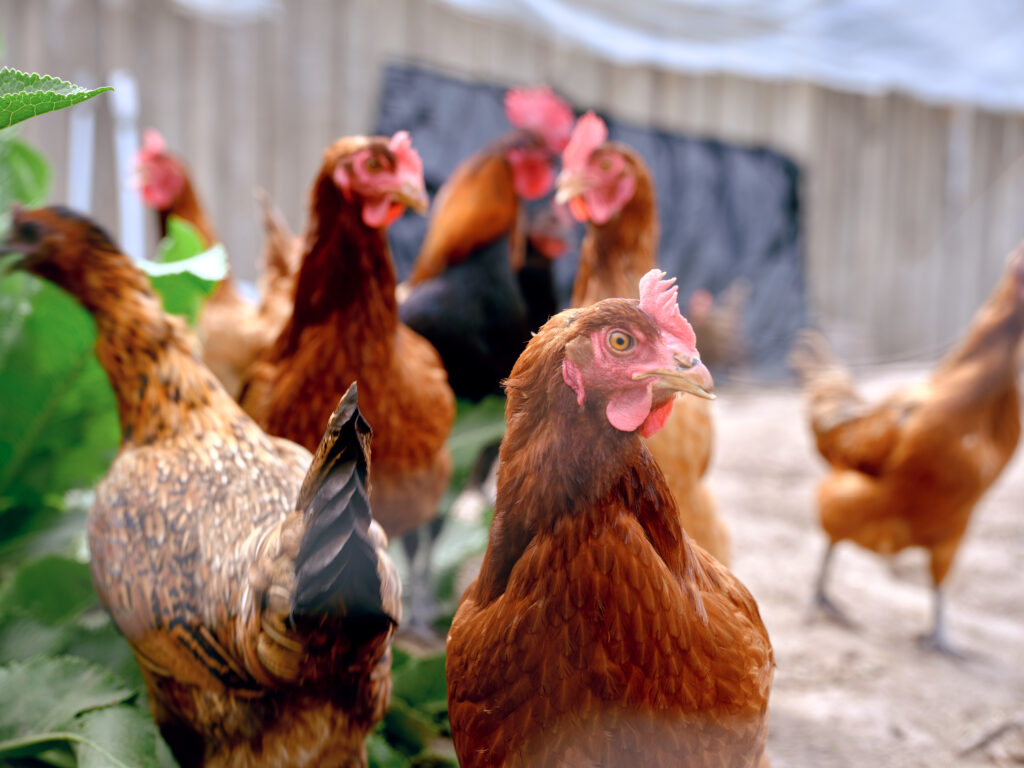
To keep eggs accessible for Minnesota families, The Food Group turned to trusted local farmers, the Carillo Brothers. The Carillo Brothers are farmer graduates of The Food Group’s Incubator Program who now own and operate a vegetable farm. Snow reflected on the power of local farmer relationships.
“We were able to make a 2-year commitment so that the Carillo Brothers could buy chicks, raise them, and produce eggs for us. We committed to a weekly delivery amount, starting as soon as the eggs are hatched.”
By working with local partners like the Carillo Brothers and Larry Schultz (another longtime egg supplier), we build up the local economy and gain certainty that an essential food item will remain available. We can also have confidence in the quality of the food we supply to food shelves and affordable grocery.
“Frankly, food that’s produced locally by people you know is generally going to be better because it’s closer and you can have awareness of production and farming practices.”
The Food Group invests in our local food system wherever possible, and we also seek to provide as much nutritious food as possible to our community. Recognizing the need to balance both, we purposefully buy local while also retaining diverse sourcing partnerships across a global food system.

Disrupting Food Scarcity
The Food Group strives to meet people’s immediate need for food. We also work toward a Minnesota where fewer people need to rely on food assistance because everyone has access to affordable, nutritious food.
Snow Aukema, Associate Director of Programs, Anti-Hunger, and Sourcing at The Food Group
“The Food Group doesn’t just care about people having food on the table. We care about people producing food. We care about our neighbors, our local economy, and people having the best.”
A strong local food system builds community power by disrupting the conditions that create food scarcity. Rhys explained that a weak local food system isolates, while a strong local food system connects:
“Everybody wants to live in community where you support each other. It’s a circle—when you don’t have local food, you’re very dependent on outside the circle… It’s a breakdown of community.”
A strong local food system is a lasting remedy to hunger. By sourcing food from Minnesota farmers, we’re creating a reliable food source for the future and building up the local economy.
Rhys explained: “Immigrant farmers and young farmers are supplying a lot of the food to the co-ops and to the farmers markets. If they can have get paid enough and they get enough out of their farm initially, then they can spread that wealth.”
For The Food Group, investing in our local food system means supporting emerging and historically underserved farmers, buying their food at fair prices, and responsibly stewarding land for the future. Rhys commented:
“You need organizations like The Food Group to support the farmers…. The Food Group’s Big River Farms Program is training farmers in how to make a living at farming.”
Harnessing the Power of Local Food
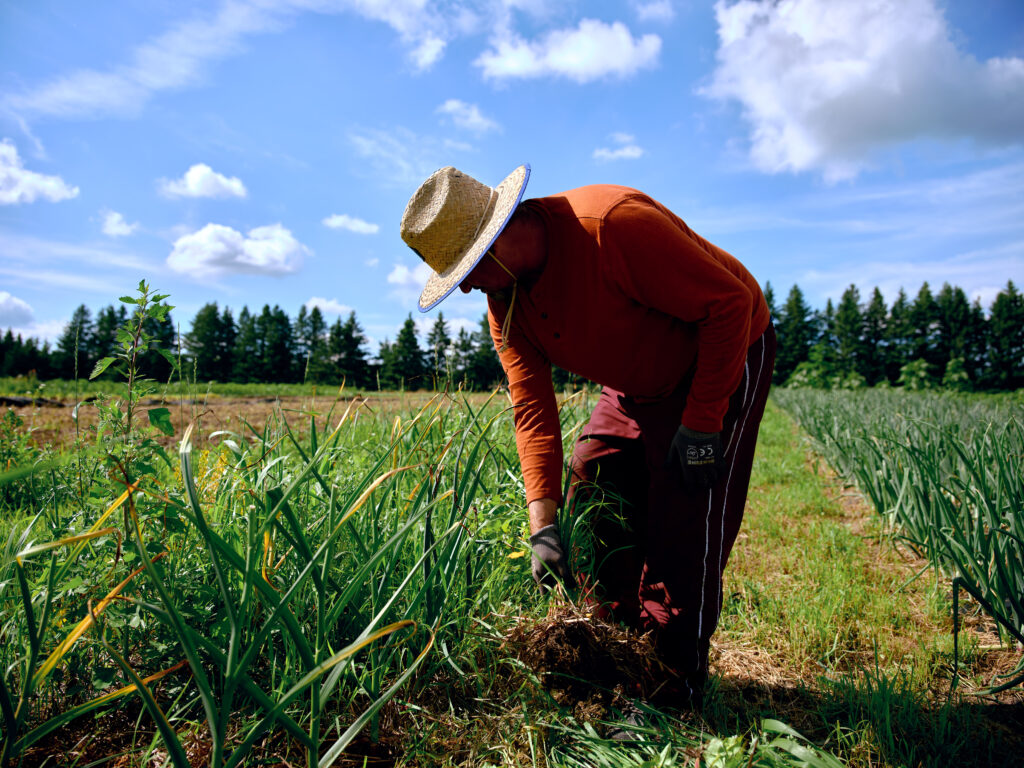
There is immense power in the local food system. A healthy local food system bolsters the economy by supporting farmer businesses and directing resources back into the community. It also fosters opportunities for emerging farmers to contribute their skills and vision to Minnesota’s food system. And ultimately, it means more nutritious foods for Minnesota families for decades to come.
Mario, a farmer enrolled in the Incubator Program at Big River Farms
The Food Group’s mission is to create food for today and change for tomorrow. From production to distribution, we believe in a holistic approach to transforming our food system, empowering farmers, and fighting hunger. The Food Group is proud to partner with Minnesota farmers toward a more just and equitable food system where farming is sustainable and local food is accessible for everyone.
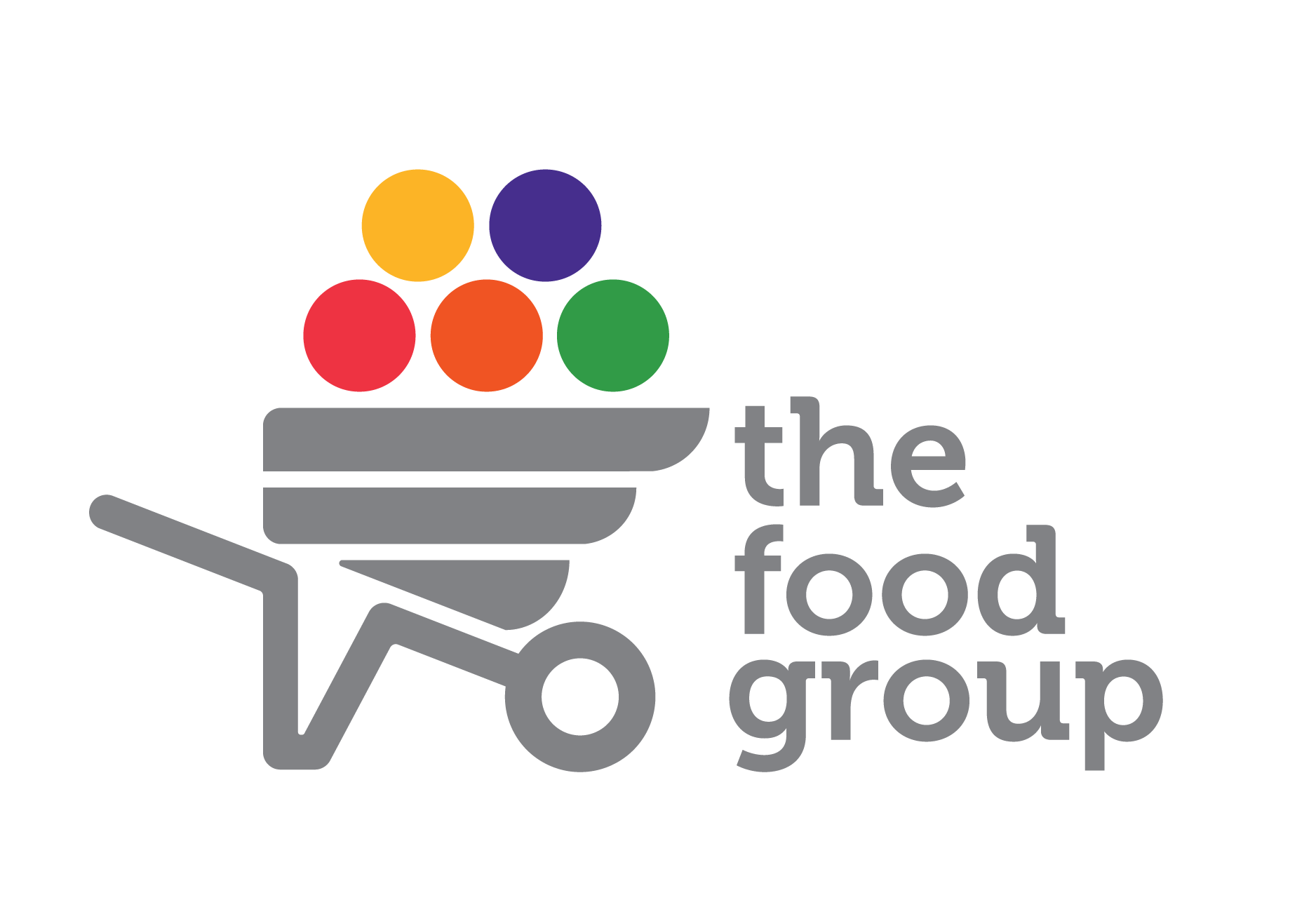

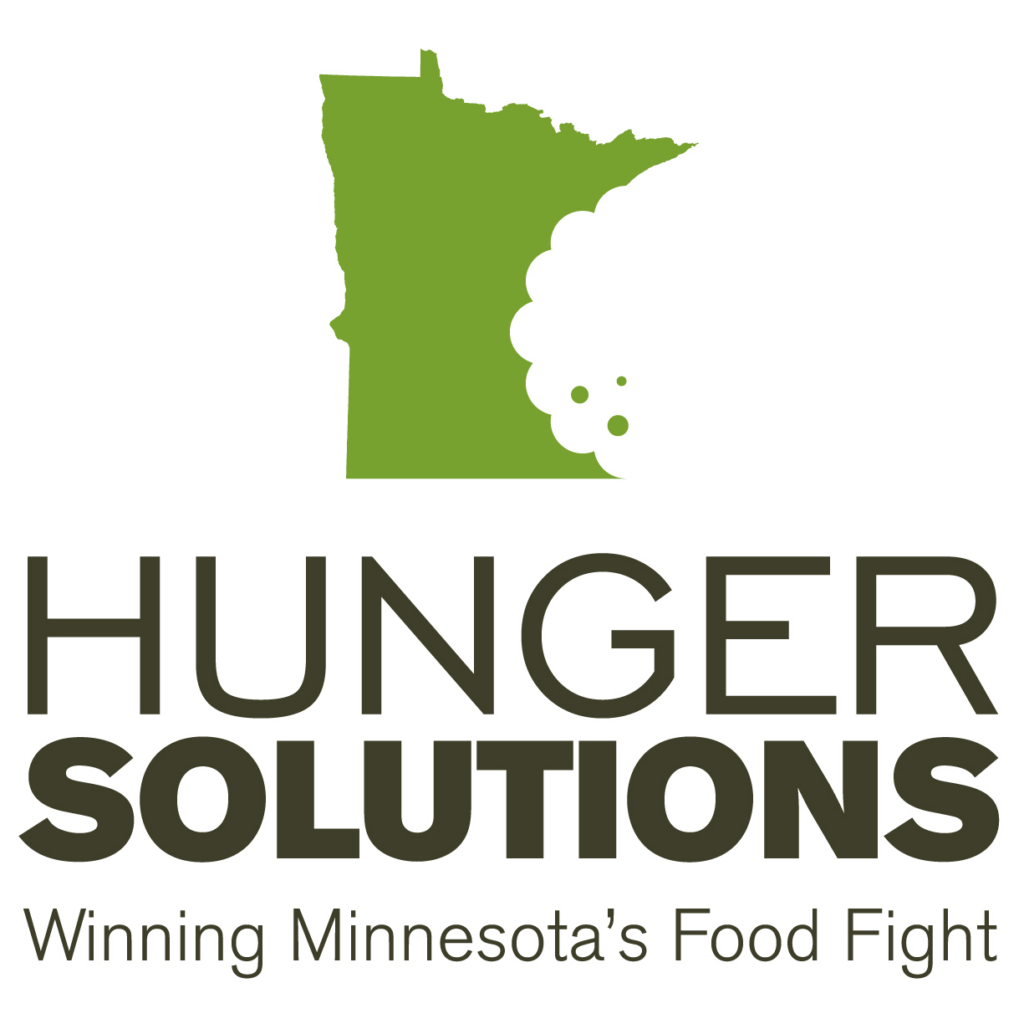
You must be logged in to post a comment.